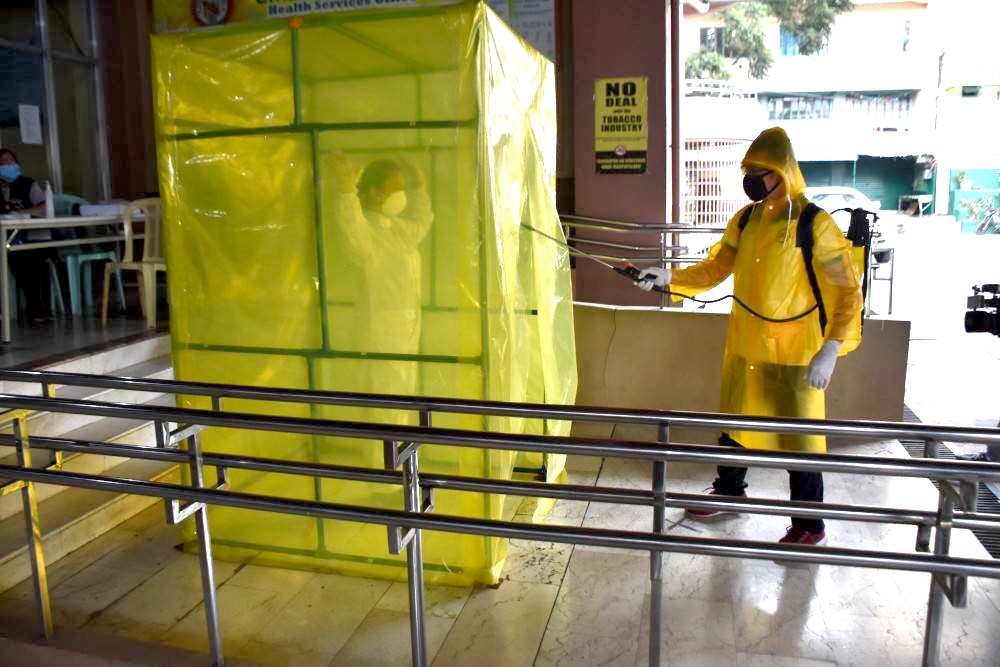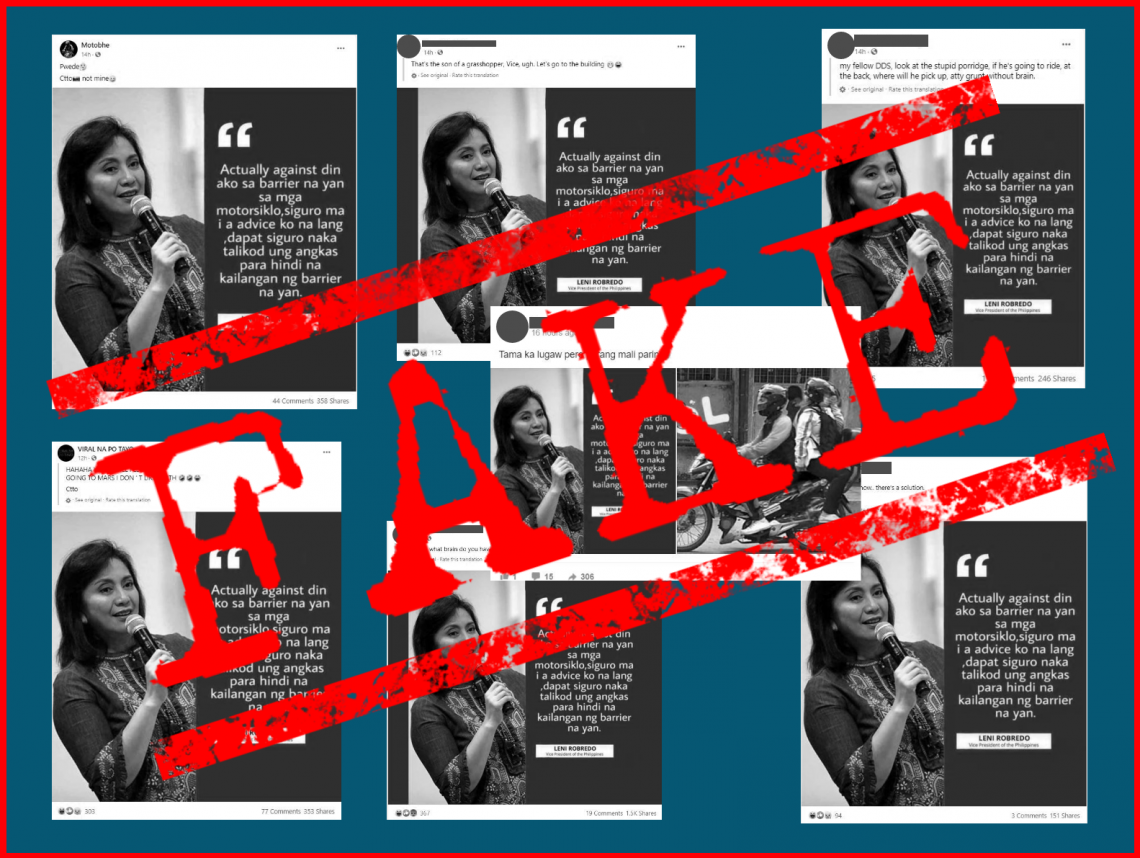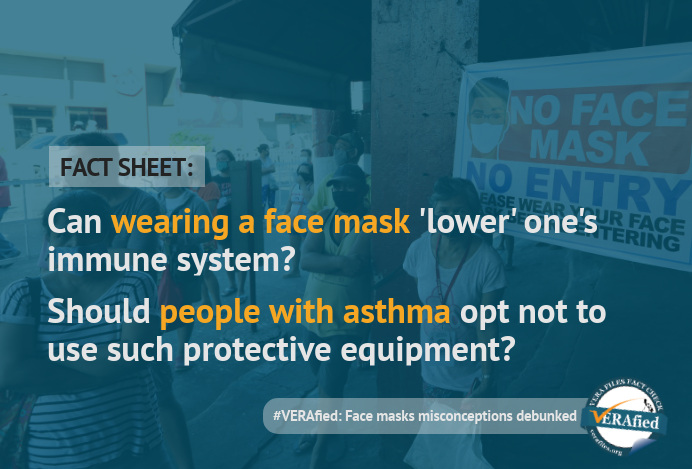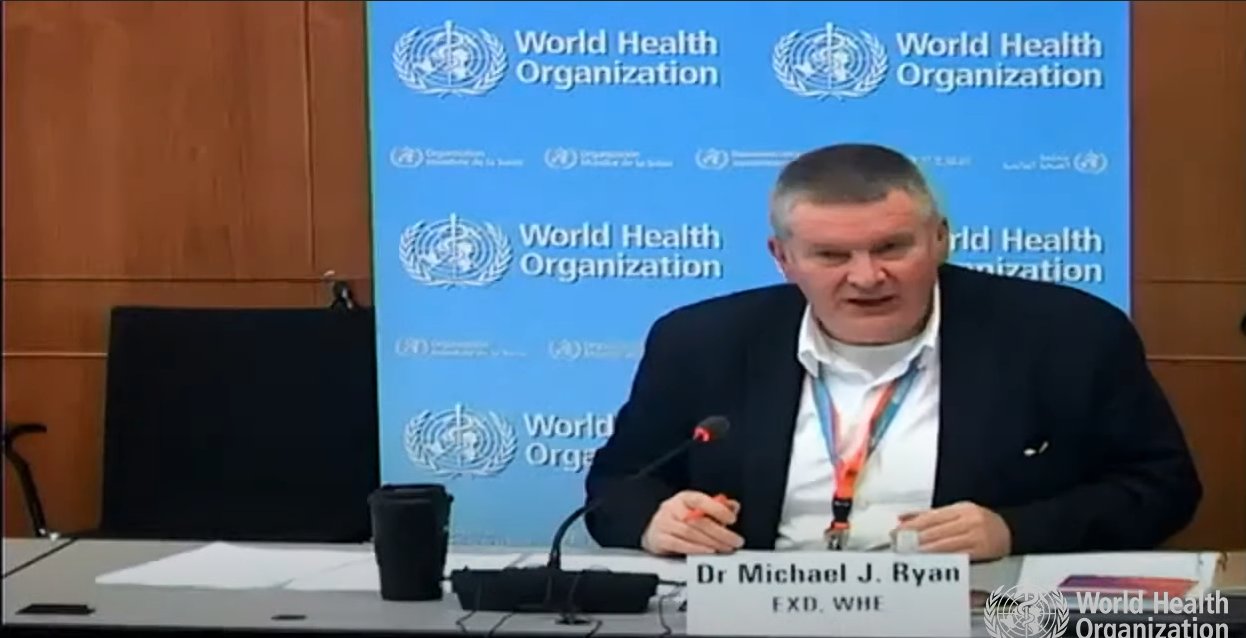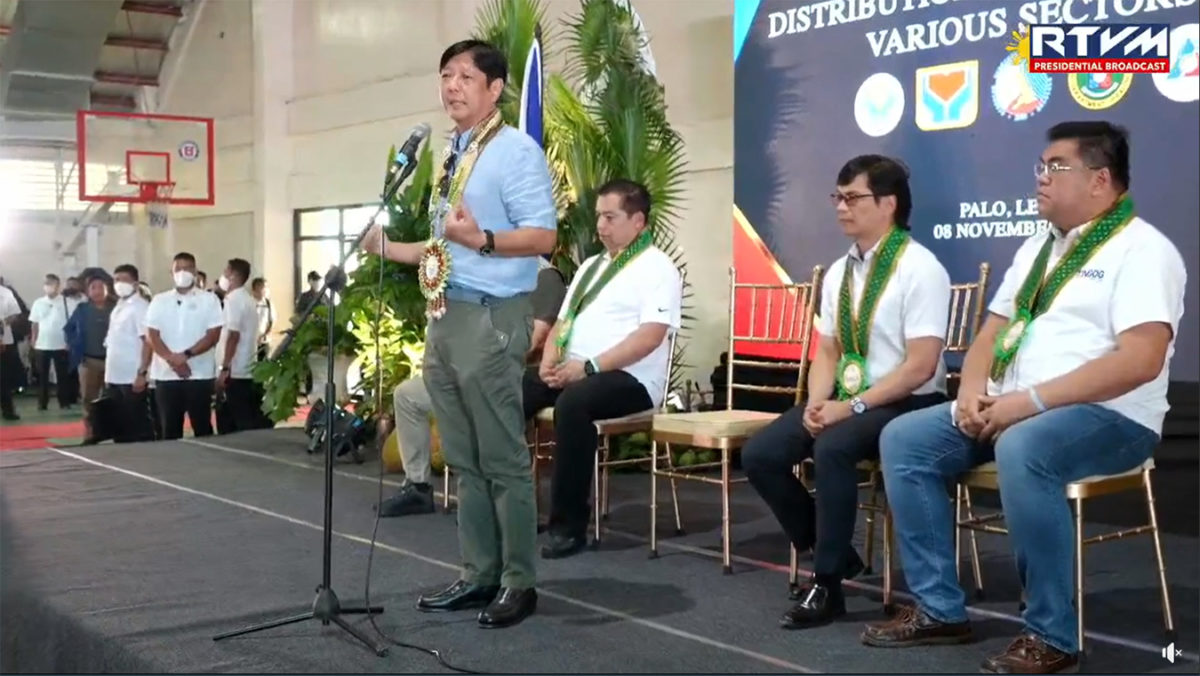Health Secretary Francisco Duque III has admitted that there is a shortage of personal protective equipment for the country’s health care workers servicing those afflicted with COVID-19.
In a press briefing on April 7, Duque said there are guidelines to work with the current “limited supply” of equipment. In a department circular, he said the pandemic “led to a shortage of personal protective equipment (PPE), ventilators, respirators, and other medical devices.”
Duque, however, did not detail how big the shortage is. The Department of Health (DOH) has yet to respond to VERA Files’ query on how many PPEs are needed for all health workers nationwide given the number of confirmed COVID-19 cases in the country.
As of April 12, the DOH’s COVID-19 tracker showed a PPE supply of of 29,748 face shields, 24,700 goggles, 35,393 gowns, 18,992 N95 masks, 87,493 shoe covers, and 73,187 masks, based on data from 30.6 percent of 1,488 hospitals and 40.7 percent of 688 infirmaries registered in the Philippines that have reported their details through the department’s DataCollect app.
On April 21, stocks have risen to 123,977 coveralls, 118,042 face shields, 54,913 goggles, 118,946 gowns, 229,568 N95 masks and 251,537 shoe covers. The figures are based on data from 48.6 percent of hospitals and 52.4 percent of infirmaries, as reported on its DataCollect app. According to the latest data available on the DOH’s National Health Facility Registry, there are 1,477 hospitals and 689 infirmaries in the Philippines as of 2017.
Here are three things you need to know about the kind of PPEs medical frontliners need.
1) What are PPEs?
Medical masks are the basic PPEs for viruses “transmitted through respiratory droplets”, according to the guidelines set by the World Health Organization (WHO). For COVID-19, the required equipment depends on the tasks of the health personnel.
2) How many PPEs do hospitals still need?
There are equipment that have to be disposed of after one use, such as medical masks, gowns, and gloves, and those that can be reused after proper sterilization, like goggles and face shields.
Goggles, gowns, and N95 face masks are among those in short supply in the hospitals that report their inventory to the government. As of the second week of April, the DOH distributed complete sets of PPEs for health workers across several hospitals. Complete sets are composed of coveralls, N95 masks, gloves, head covers, shoe covers, goggles, and surgical masks gowns.
The Philippine Lung Center, a COVID-19 referral hospital, has supplies good only for the next 10 to 14 days. In a phone interview with VERA Files on April 16, hospital spokesperson Dr. Norberto Francisco said hospital employees use around 600 PPE sets per day, 500 for the employees dealing with COVID-19 patients and 100 for those in the triage, but because some of these equipment are reusable, the hospital is in dire need of specific items.
He said 10,000 isolation gowns and 5,000 coveralls are needed to protect the Lung Center’s health workers — including doctors, nurses, technicians, and all those that come in close contact with COVID-19 patients — for another 10 to 14 days. Meanwhile, he said the hospital has an excess of face shields, which can be sterilized and reused, and that it has already given some away to other hospitals in need.
In a text message to VERA Files, Dr. Rica Ching from the Dr. Jose Fabella Memorial Hospital said it needs 150 PPE sets per day for the 14 employees that tend to its 3 confirmed COVID-19 patients as of April 15. It added that the hospital has had patients who died before they could get their COVID-19 test results. While it is not a COVID-19 referral hospital, it is preparing to take care of more suspected and positive patients.
There are 7,777 confirmed COVID-19 cases in the Philippines as of April 27, a sharp rise from the 2,311 cases confirmed at the start of the month. There have been 511 confirmed deaths and 932 confirmed recoveries.
3) What is being done to address the shortage in supply?
DOH has procured one million complete sets of PPEs to be delivered in batches and distributed by the Office of Civil Defense within the month, pursuant to Administrative Order no. 27. As of April 14, 82,000 sets have been distributed to different hospitals.
However, Francisco said more focus should be given to donations of single-use equipment such as isolation gowns and coveralls.
Several charity groups, foundations, and businesses continue to facilitate or provide donations to better equip medical frontliners.
Local manufacturers have also been tapped to produce more PPEs based on the guidelines set by the Food and Drug Administration.
In an online interview with VERA Files on April 1, Frederick Banlas, a Butuan-based consultant for clothing company One Closet, said it has been working with the College of St. Benilde and a network of volunteer fashion designers, including Rajo Laurel, Delby Bragais, Cecilio Abad, RJ Santos, Julius Tarog, Miel Avena, Victor Baguilat, Marlon Jay Victa, Rica Siena, Angel Esteban, and Alex Albano, to provide PPEs for health workers in Luzon since March.
ERRATUM: An earlier version of the article mistakenly stated that there were 2,310 confirmed cases of COVID-19 as of April 1, and 3,201 confirmed cases with 437 deaths and 655 recoveries as of April 22. There were 2,311 confirmed cases as of April 1, and 6,710 confirmed cases with 446 deaths and 693 recoveries as of April 22. We apologize for the mistake.
Sources
GMA News, LIVESTREAM: DOH press briefing on COVID-19 | April 7, 2020 | Replay, April 7, 2020
Department of Health, Department Circular No. 2020-0175, April 13, 2020
Covid19.gov.ph,COVID-19 Tracker, last accessed April 27, 2020
Department of Health, National Health Facility Registry v2.0, last accessed April 22, 2020
World Health Organization, Infection prevention and control of epidemic- and pandemic-prone acute respiratory infections in health care, 2014
World Health Organization, Rational use of personal protective equipment (PPE) for coronavirus disease (COVID-19), March 19, 2020
CNN Philippines, The Source: Esperanza Cabral and Jonas Del Rosario, April 1, 2020
Department of Health, First batch of 1M procured personal protective equipment sets arrives in the country, April 1, 2020
Department of Health, DOH updates on delivered PPEs, April 8, 2020
Official Gazette, Administrative Order No. 27, March 31, 2020
Department of Health, Virtual Presser, April 14, 2020
Food and Drug Administration, Administrative Order no. 2016-0003, February 15, 2016
(Guided by the code of principles of the International Fact-Checking Network at Poynter, VERA Files tracks the false claims, flip-flops, misleading statements of public officials and figures, and debunks them with factual evidence. Find out more about this initiative and our methodology.)
